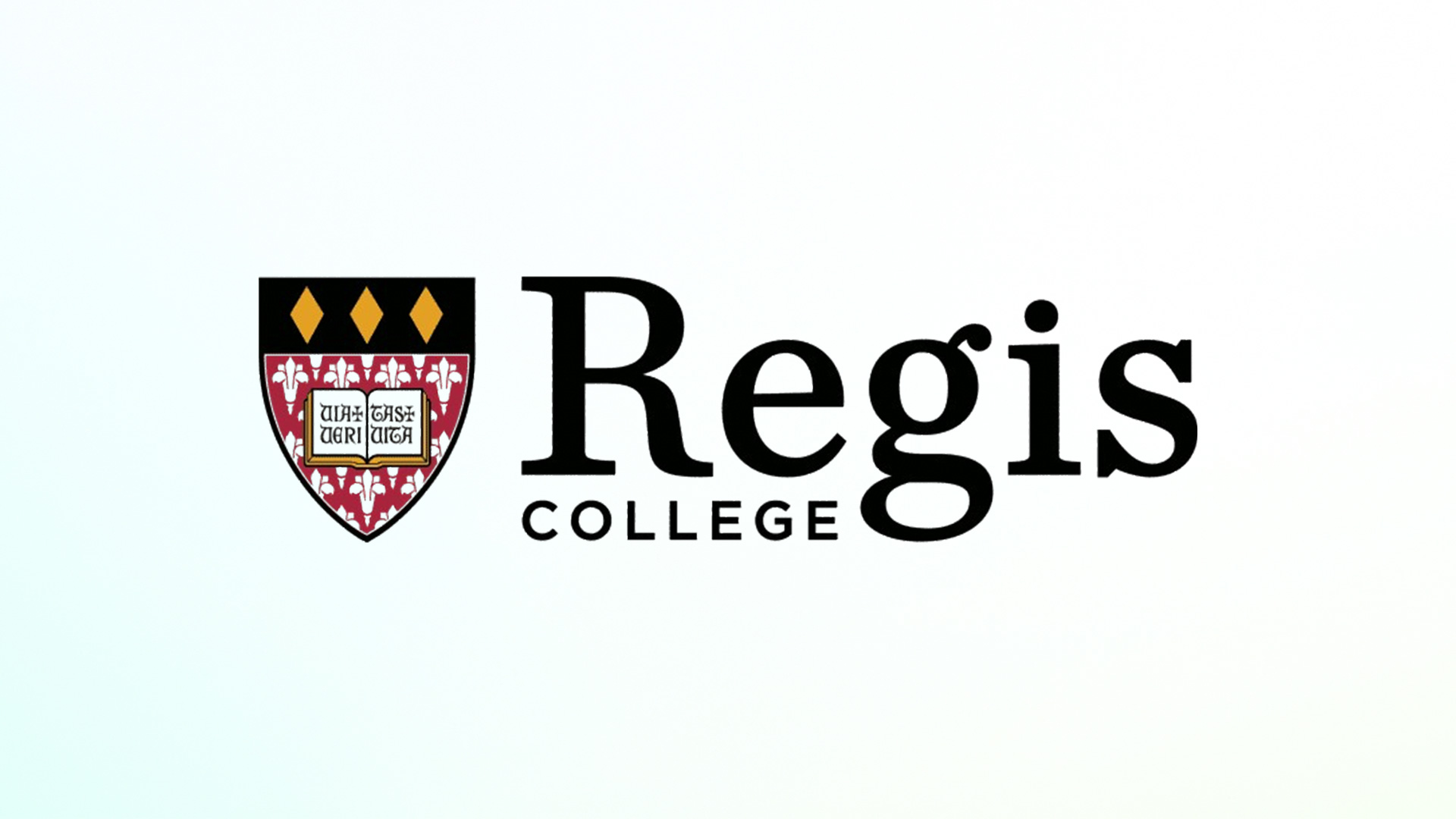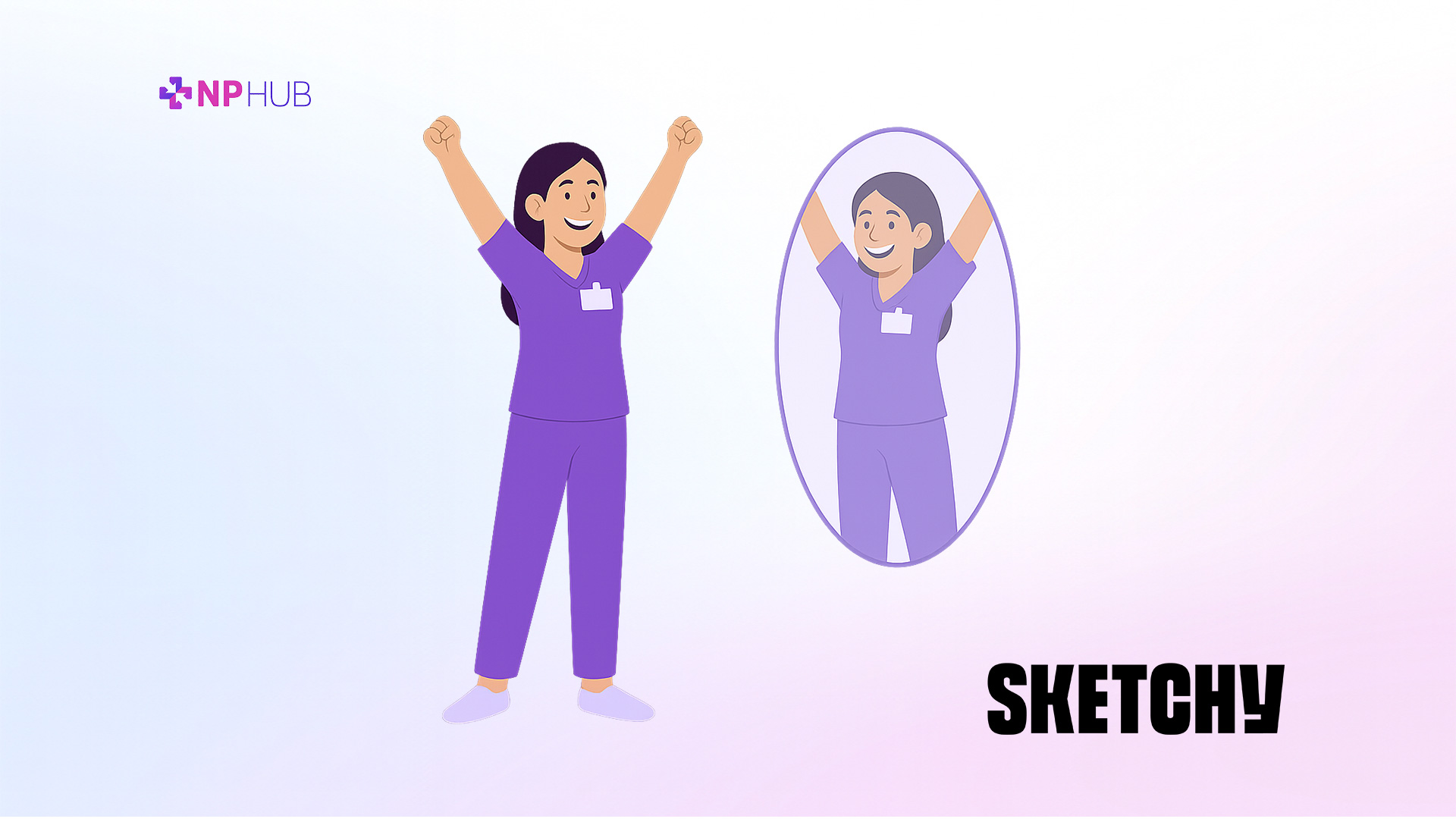Clinical rotation in Maryland means securing a preceptorship through hospitals, clinics, or services that match NP students with licensed providers. Most nurse practitioner programs require students to complete 500–1000 clinical hours, and Maryland offers strong options in primary care, pediatrics, emergency medicine, and more
TL;DR: How to Land a Clinical Rotation in Maryland
- Maryland offers diverse rotations in primary care, pediatrics, mental health, and more—especially in cities like Baltimore, Columbia, and Germantown.
- Start early and use every resource—university networks, cold outreach, and placement services like NPHub can all help you secure a preceptor.
- Full practice authority in Maryland makes it a great state for NP students to train and eventually work with greater autonomy.
- Costs for placement services vary but can save you from missed deadlines and last-minute panic.
- Don't go it alone—strategic planning and support make all the difference in finding the right preceptor on time.
Why finding clinical rotations in Maryland feels so hard
Finding Maryland clinical rotations can feel like a full-time job. Between reaching out to potential Maryland preceptors, managing rejection emails, and figuring out where to start, it’s easy to get overwhelmed.
This guide cuts through the chaos. We’ll cover how to leverage university networks, professional organizations, and resources like NPHub to find Maryland preceptors who fit your goals.
Maryland’s range of Maryland clinical rotations, from emergency medicine to pediatrics, offers plenty of opportunities to build your skills. The key is knowing where to look and how to approach Maryland preceptors effectively.
Here’s how to streamline your search and secure your next clinical rotation in Maryland.
Finding and contacting preceptors in Maryland
Securing the right Maryland preceptors is essential for gaining hands-on experience and advancing your skills as a nurse practitioner. The key is to leverage every resource available from university networks and professional organizations to online directories focused on preceptorships.
Using a zip code search practice can also help you narrow down potential preceptors based on your preferred geographic area, including Baltimore preceptors, Columbia preceptors, Germantown preceptors, and Frederick preceptors.
Start by exploring common employers of nurse practitioners in Maryland. Hospitals and health systems are a good bet, offering a range of opportunities across emergency and outpatient care departments.
Primary care practices are another solid option, especially given the shortage of primary care physicians in the state. Specialty clinics in areas like pediatrics, geriatrics, and mental health can provide targeted learning experiences, while community health centers often welcome NPs to help serve underserved populations.
When reaching out to potential preceptors, aim for those with board certification in your area of interest. Board-certified preceptors bring a wealth of knowledge and experience, making them ideal mentors. Carefully reviewing preceptorship descriptions can give you insight into the types of patients and cases you’ll encounter, helping you choose the right fit for your learning goals.
Don’t overlook your university’s resources. Many schools maintain established relationships with local preceptors, and your placement office or career services department can offer valuable recommendations. Networking through professional events and conferences can also open doors—face-to-face interactions are often more impactful than cold emails.
When contacting preceptors, keep it professional and to the point. Highlight why you’re interested in their practice and how working with them aligns with your career goals. Personalizing your outreach whether by email, phone, or in person can significantly improve your chances of getting a response.
Ultimately, finding the right preceptor in Maryland is about building a professional relationship that fosters both learning and career growth. Taking a strategic approach to your search will save you time and get you closer to securing the clinical experience you need.
Types of clinical rotations available in Maryland
Maryland provides a variety of clinical rotations catering to various specialties, ensuring a well-rounded medical education. A foundational rotation is the Introduction to Clinical Medicine IV, usually completed at an AHEC site. This rotation focuses on serving underserved areas, giving students a unique perspective on healthcare delivery.
Emergency medicine rotations are especially popular in Maryland’s bustling cities like Baltimore. Students in these rotations experience high-pressure environments, learning to manage acute medical conditions. By working alongside seasoned clinicians, students gain invaluable experience for the fast-paced nature of emergency medicine.
Hospice rotations provide profound insights into end-of-life care for those interested in palliative care. They emphasize compassionate care, pain management, and supporting patients and their families during challenging times. Experience gained in hospice settings is crucial for clinicians aiming to provide patient care.
Pediatrics is another key focus area, with rotations clinical rotations available in various Maryland hospitals, including opportunities for Columbia clinical rotations, Germantown clinical rotations, and Frederick clinical rotations.
These rotations encompass a wide range of pediatric care, from routine check-ups to managing chronic illnesses. Working with children requires specific skills and a compassionate approach, making these rotations both challenging and rewarding.
Additionally, Maryland offers unique opportunities for international electives, pending safety and quality reviews. These electives allow students to experience healthcare in different cultural contexts, broadening their understanding of global health issues. Whether staying in a Maryland school or exploring international rotations, each experience will significantly contribute to your medical training.
How to get preceptors to respond?
Finding a preceptor is often one of the most stressful parts of being an NP student. You send out dozens of emails, leave countless voicemails, and it feels like you’re shouting into the void.
Meanwhile, deadlines are creeping up and every unanswered message just adds to the pressure. The problem isn’t just finding preceptors—it’s getting them to actually respond.
Most preceptors are juggling packed schedules and aren’t actively looking to add more to their plate. So, the key to getting a response is to make your request as straightforward and appealing as possible.
This means skipping the generic outreach, showing that you understand the demands on their time, and proving that you’re not just another student looking for a checkbox experience.
1. Leverage university resources
Start by reaching out to your university’s placement office or career services. They often have lists of preceptors who have previously worked with students and may even reach out on your behalf. Professors can also be a valuable resource, especially if they have clinical connections in your area of interest.
2. Contact local hospitals and clinics directly
Call local hospitals and clinics to ask if they have any preceptors accepting students. Request to speak directly with the education coordinator or the office manager. Keep your message brief and to the point, focusing on your specialty interest and availability.
3. Highlight what you bring to the table
Emphasize how you can make a preceptor's life easier. Mention that you’re willing to assist with administrative tasks, patient follow-ups, or other responsibilities during your rotation. This shows you understand the demands on their time and are eager to contribute.
4. Use a professional and clear approach
Keep all communications—whether by phone, email, or in person—straightforward and respectful. Avoid overwhelming them with long messages or excessive details. Focus on who you are, what you need, and why you’re reaching out to them specifically.
5. Follow up, but don’t overdo it
If you don’t get a response, send a brief follow-up after about a week. Express appreciation for their time and restate your interest without being pushy. Limit yourself to one follow-up to avoid coming across as desperate.
Maryland NP Preceptor Guides by Region
Looking for location-specific advice to land your next clinical rotation? Check out these in-depth guides tailored for high-demand areas in Maryland:
- Where to Find Nurse Practitioner Preceptors in Baltimore, Maryland: Learn how to secure clinical placements in Baltimore through school support, smart outreach, and services like NPHub.
- How to Find Nurse Practitioner Preceptors in DC Metro, Maryland: Get a clear plan for finding preceptors in the DC suburbs, even without school help, and explore how placement services can save you time and stress.
These regional guides break down everything from preceptor search strategies to common red flags—so you’re never left guessing.
The growing demand for Nurse Practitioners in Maryland
The demand for nurse practitioners in Maryland is on a steady rise, with employment projected to grow by 36% between 2020 and 2030. This surge translates into approximately 420 job openings annually, making it an excellent time for NP students to secure preceptors and build networks for future employment.
The state’s healthcare landscape is evolving rapidly, driven by a combination of an aging population and a shortage of primary care physicians, which is opening more doors for nurse practitioners across various specialties.
Competitive salaries and opportunities
Nurse practitioners in Maryland enjoy competitive salaries, with the overall range between $87,810 and $163,650 annually. Salaries vary significantly by industry, with NPs in outpatient care centers earning an average of $135,511, while those working in medical and surgical hospitals make about $133,920.
Urban areas like Baltimore-Columbia-Towson offer mean salaries around $128,670, while NPs in more rural parts of the state can expect to earn approximately $122,010.
This financial incentive, combined with the projected employment growth, highlights the benefits of securing clinical rotations and preceptors in Maryland to establish early connections within the industry.
Full practice authority: A major advantage
Maryland is among the states that grant full practice authority to nurse practitioners, allowing them to diagnose, treat, and prescribe medications independently without physician oversight. This level of autonomy not only enhances the scope of practice for NPs but also makes Maryland an attractive destination for those seeking to maximize their clinical skills and professional freedom.
Securing a preceptor in Maryland means getting hands-on experience in a state that allows NPs to practice to the full extent of their training, making your clinical rotations even more valuable.
Diverse specializations and strong healthcare onfrastructure
Maryland’s healthcare infrastructure, featuring renowned facilities like Johns Hopkins Hospital, offers a range of opportunities for nurse practitioners across various specialties.
The state’s NP programs provide diverse specializations, including family nurse practitioner, pediatric nurse practitioner, and psychiatric mental health nurse practitioner, enabling students to align their clinical rotations with their career goals. Hospitals, specialty clinics, and community health centers are some of the most common employers, providing NPs with a broad spectrum of potential preceptors.
Building a long-term career
Choosing to complete clinical rotations in Maryland not only helps fulfill graduation requirements but also strategically positions NP students for long-term employment in a state with growing demand and competitive salaries.
Establishing connections with preceptors in Maryland's robust healthcare network can significantly enhance job prospects post-graduation, especially with the increasing annual job openings projected for the next decade.
Understanding these factors makes it clear why finding the right preceptor in Maryland is a critical step towards a successful NP career in one of the most promising states for advanced practice nurses.
Take the first step to secure your clinical rotation
Finding a preceptor in Maryland can be stressful and overwhelming, but NPHub is here to make the process easier.
We specialize in connecting NP students like you with trusted preceptors and handling all the paperwork and logistics. From the start to the end of your rotation, we support you every step of the way.
We know you already have enough to juggle between work, studies, and everyday life. That’s why our team takes care of coordinating all the details so you can focus on learning and moving closer to graduation.
Every Maryland preceptor in our network is rigorously vetted to ensure you have a high-quality and enriching learning experience. and aligns with your career goals whether that’s in Baltimore, Columbia, Germantown, or Frederick.
You don’t have to keep searching on your own or deal with the stress of unanswered emails. Let NPHub handle the search while you prepare to make the most of your clinical experience.
We know how much this means to you: the countless hours of studying, the sacrifices, and the dreams you’ve been chasing since day one and you don’t have to do this alone.
Let us handle the stress and the search, so you can focus on becoming the nurse practitioner you’ve always envisioned. Your passion deserves a clear path forward.
Frequently Asked Questions
1. How do I find a nurse practitioner preceptor in Maryland?
Start by checking with your university’s placement office or NP program advisor. If you’re on your own, use professional directories, contact local clinics and hospitals, or partner with a placement service like NPHub to find vetted Maryland preceptors.
2. What are the best cities in Maryland for NP clinical rotations?
Baltimore, Columbia, Germantown, and Frederick are among the top cities for clinical placements. These areas offer diverse healthcare settings, from community clinics to large hospital systems, and are home to many experienced preceptors across specialties.
3. Can I get a Maryland preceptor if my school is out of state?
Yes, but your school must have an active clinical affiliation agreement with the preceptor’s site. Always confirm with your program coordinator and ensure the site meets your school’s requirements before committing.
4. What’s the difference between using my school vs a placement service like NPHub?
Schools may offer limited placement help, often requiring students to cold outreach themselves. NPHub, on the other hand, provides guaranteed placements with verified preceptors, handles the paperwork, and saves you time and stress.
5. How much does it cost to use a preceptor-matching service in Maryland?
Prices vary based on location and rotation type, but students typically pay between $1,000 and $2,500 per rotation. Many find the investment worthwhile to avoid delays in graduation or missed deadlines.
6. What types of clinical rotations are available in Maryland?
Maryland offers rotations in primary care, family medicine, pediatrics, mental health, emergency medicine, hospice, and more. These opportunities exist across hospitals, specialty clinics, and community health centers.
7. When should I start looking for clinical placements in Maryland?
Begin your search at least 4–6 months in advance. Some sites have lengthy onboarding or credentialing processes, so early planning is key—especially in competitive areas like Baltimore.
8. Are there any Maryland-specific laws or requirements for NP clinical rotations?
Maryland grants full practice authority to NPs, but students must still complete clinical hours under supervision. Be prepared to submit documentation like RN license verification, immunizations, and liability insurance as part of site onboarding.
9. What if I can’t find a Maryland preceptor in time for my rotation?
If you're running out of time, consider using a placement service like NPHub to secure a last-minute rotation. They can expedite the process and help you avoid graduation delays.
10. Do Maryland NP preceptors expect me to have prior experience?
No prior NP experience is required for most student rotations. However, having a strong foundation in nursing, being organized, and showing eagerness to learn can make you a more appealing candidate.
Key Terms & Definitions for Maryland NP Students
- Clinical Rotation
- A supervised, hands-on training experience where NP students apply classroom knowledge in real healthcare settings under the guidance of a licensed preceptor.
- Preceptor
- A licensed healthcare provider (NP, MD, DO, PA) who supervises and mentors NP students during clinical rotations, providing guidance, feedback, and evaluation.
- Full Practice Authority
- The legal ability for nurse practitioners to diagnose, treat, and prescribe independently without physician oversight. Maryland is a full practice authority state.
- Clinical Affiliation Agreement
- A formal partnership between a school and a healthcare site allowing students to complete clinical hours at that location.
- Placement Service (e.g., NPHub)
- A third-party organization that helps NP students secure clinical preceptors, often handling paperwork and onboarding logistics.
- Credentialing
- The process of verifying a student’s qualifications (RN license, immunizations, certifications) to allow participation in a clinical rotation.
- Primary Care
- A healthcare specialty focused on general medical care, often the first point of contact for patients. Common settings include family medicine, internal medicine, and pediatrics.
- Specialty Rotation:
- A clinical experience focused on a specific field like mental health, emergency medicine, or women’s health, allowing students to gain expertise in targeted areas.
- Outreach Email
- A message sent by students to potential preceptors introducing themselves and requesting a clinical placement opportunity.
- NPHub
- A preceptor-matching platform that supports NP students by connecting them with vetted clinical sites and managing rotation logistics.
About the author
- NPHub Staff
At NPHub, we live and breathe clinical placements. Our team is made up of nurse practitioners, clinical coordinators, placement advisors, and former students who’ve been through the process themselves. We work directly with NP students across the country to help them secure high-quality preceptorships and graduate on time with confidence. - Last updated
Aug 12, 2025 - Fact-checked by
NPHub Clinical Placement Experts & Student Support Team - Sources and references
- https://www.onetonline.org/link/localtrends/29-1171.00?st=MD
- https://www.nursepractitionerlicense.com/nurse-practitioner-salary/maryland-nurse-practitioner-salary/
- https://www.nphub.com/blog/find-nurse-practitioner-preceptors-in-baltimore-maryland
- https://www.nphub.com/blog/preceptor-for-dc-metro-maryland-np-students
Find a preceptor who cares with NPHub
Book a rotation.webp)








.webp)


.webp)



.webp)